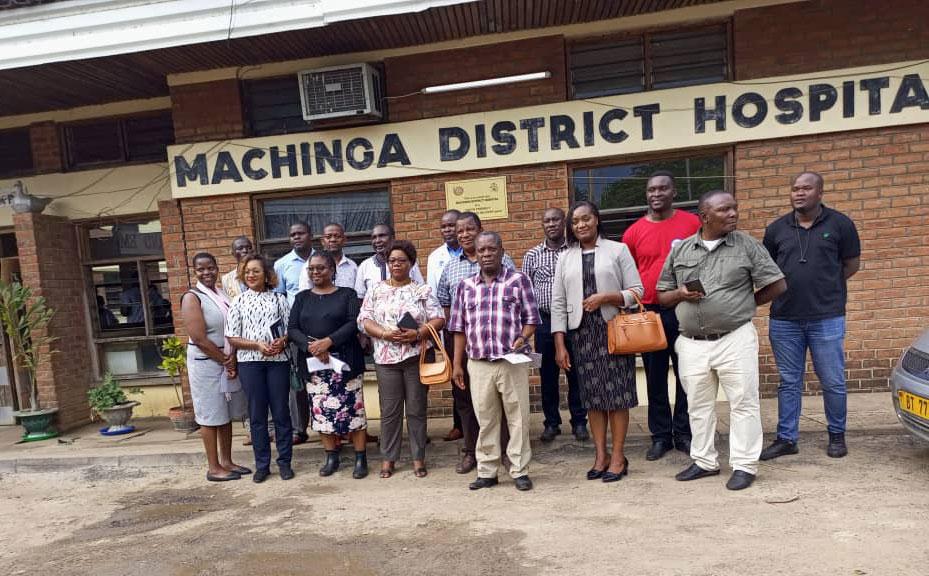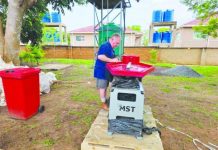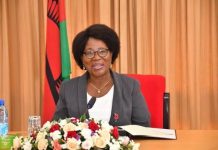Africa-Press – Malawi. When the government declared a cholera outbreak in March last year, no one could have guessed that the disease was here to stay, at least for the whole duration of 2022.
From a single fatality in Machinga District, 22,759 people have suffered from cholera in the past nine months. Unfortunately, at least 750 people have succumbed to the disease. The disease has left no place unscathed, be it in rural or urban areas.
Actually, rising cases of cholera in the cities of Blantyre and Lilongwe forced the Presidential Taskforce on Covid and Cholera to announce that, when primary and secondary schools would open on January 3 this year, learners and students from Blantyre and Lilongwe cities would remain home.
The move, according to taskforce co-chairpersons Wilfred Chalamira Nkhoma and Khumbize Kandodo Chiponda, was meant to save learners and students from cholera infection. Schools remain closed.
The cholera onslaught on Malawi has culminated in people—who do not often set foot on the ground to check on matters related to diseases— visiting facilities in the country.
Just this week, for example, Parliamentary Committee on Health Chairperson Mathews Ngwale and other members of the committee visited Machinga District Hospital, where they appreciated efforts being made to contain cholera.
The choice of Machinga was not accidental. The first case of cholera under the first wave was registered there. In addition, Machinga is one of the districts that continue to register cholera cases.
And, from what Ngwale observed, the fight against cholera may prove to be a tall order if people continue to disregard hygiene protocols. “I am not impressed with levels of hygiene, starting with Machinga District Hospital.
“I am afraid that, if this continues, we may not be able to contain the cholera outbreak,” he said. He contrasted the situation in Machinga District to that in Salima District, where, he said, they were impressed with levels of hygiene.
“No wonder, cases of cholera have plummeted in Salima District. If Malawians embrace good hygiene, challenges such as cholera outbreaks will be a thing of the past,” he said.
He also cited poor health-seeking behaviour as another factor contributing to an upsurge of diseases in the country. The parliamentary committee chairperson further pointed at lack of financial resources as another challenge facing the health sector.
Recently, Health Minister Chiponda admitted that there is a long way to go for the country to meet terms of the Abuja Declaration on health sector financing.
In 2001, African Union member states signed the Abuja Declaration, pledging to allocate at least 15 percent of their national budgets each year to improve healthcare systems.
According to Chiponda, the Government of Malawi managed to contribute 11 percent to the health sector budget in 2022. She said the ministry is willing to reach the 15 percent but it is faced with various challenges.
“We will keep on negotiating with the Treasury so as to increase the country’s contribution to the health sector.
“However, we must be aware that the government has to look for many other ministries in terms of funding.
“But we are hopeful that, with time, we will be able to contribute more to the health budget in the country,” Chiponda said. World Health Organisation (WHO) Country Representative Neema Kimambo emphasised the need to reach the 15 percent contribution.
She said while the donor community will continue helping Malawi, it is necessary for the country to contribute the 15 percent. “Well, we understand that the nation is going through a series of crises, including the cholera outbreak. But our stand as a donor community still remains that countries must reach 15 percent when it comes to health financing,” Kimambo said.
Malawi Health Equity Network Executive Director George Jobe said Malawi needs to devise plans on how to finance the health sector. He cited the collection of levies from toll gates since people involved in road accidents seek medical help.
With, or without financial support, Machinga District Commissioner Lucia Chidalengwa has committed to addressing challenges the district is facing in its quest to put cholera at bay.
“We are making resources available to those who are at the forefront of fighting cholera.
“We are also sensitising residents to the importance of keeping their surroundings clean,” she said.
Just when Malawi thought, with cholera cases rising, it had enough on its hands, coronavirus has reared its ugly face again, barely a month into the year 2023. For instance, this week, Maula Prison registered 15 cases of Covid, up from seven, the Malawi Prison Service said.
This is happening at a time a new coronavirus variant, which WHO has identified as XBB 1.5, has been detected in South Africa, which is a member of the Southern African Development Community to which Malawi is a member.
Apart from South Africa, the new variant is making rounds in China and 25 other countries in the world. Malawi Prison Service spokesperson Chimwemwe Shaba said those that have tested positive for coronavirus are showing mild symptoms.
“We have, in fact, put them in isolation,” he said.
The development has prompted Centre for Human Rights Education, Advice and Assistance Executive Director Victor Mhango to call for the decongestion of prisons.
“Prison congestion poses a threat to prisoners,” he said. However, Nkhoma has assured that Malawi is on top of things. He said they are ready to contain coronavirus should cases be reported in the country.
Ironically, the Presidential Taskforce on Covid and Cholera last week called for support, saying its resources are getting stretched by the emergence of diseases on multiple fronts. With cholera and Covid in the frame, the taskforce cannot be far from the truth.
For More News And Analysis About Malawi Follow Africa-Press






